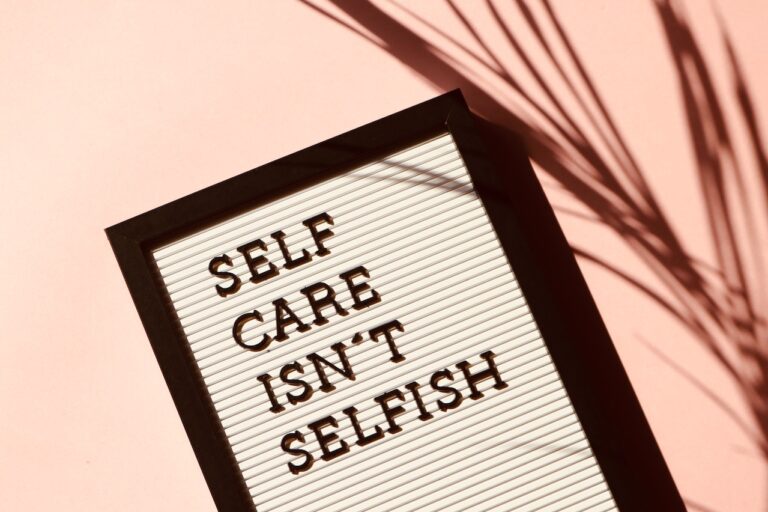6 Myths About Caring for Your New Baby
Preparing for the birth of your baby and how to care for it can seem scary. You’ve probably read some or a LOT of parenting books.
While there is some really good information out there about babies, there is also some really harmful information too.
Trying to work out what is actually true and relevant is really difficult.
Debunking the myths of infant care
In truth, there isn’t any one book, course, or system that will guarantee to be right for your baby.
Some of the theories and tips are over 100 years old. When it comes to the topic of sleeping, setting routines, carrying and self-soothing, most of the advice is out of date, or not based on scientific fact.
I’ve had 20 years of experience supporting new families and 9 years of being a parent myself and I’ve read ALL the parenting books. In this blog post,
I bust some myths about baby books and caring for your newborn below.


1. Myth: Baby books will prepare you for parenting
Truth: Each new baby is a learning curve
When you are pregnant, your focus is mostly on the birth itself. That’s completely understandable. You’ve probably read books and blogs, have a birth plan, your bags ready and feel in control.
The birth is like a looming mountain, with the reality of having a baby and having to look after them, on the other side of the mountain!
You can’t really focus on what it’s like to be a parent, because birth is that big hurdle in the way.
Even if you CAN see past the birth, and have read all the books, you’ll still be meeting an unknown person and welcoming them into your life.
That is why, even if you have had a baby before, it’s still an untested situation that you can’t really prepare for. You’re expected to launch straight into an intense relationship where you are responsible for the survival of a person you know very little about!
None of the authors of newborn parenting books will have met YOUR baby.
Each new baby comes to a new family with a distinct personality and temperament. Parents will tell you that each new baby is a steep learning curve.
Those first few months of looking after a baby are essentially about getting to know your baby, what they like, what they don’t like, and how they communicate their needs.
There is no baby book that will fully explain how to do that.


2. Myth: We know how babies tick
Fact: The science of child development is over 100 years old
Our society has some very strange notions about baby behaviour. We tend to think that babies sleep for three hours, then wake to feed, and then go back to sleeping in their cot for another three hours. Some do, but most don’t.
These ideas are rooted in child development theories that are over 100 years old, and were basically just made up by some middle-aged men who decided to tell mums how their babies should behave.
For example, some of these ideas include: that crying is good for their lungs, that babies should only be fed at regular intervals, and that they should be able to sleep through the night by 4 months and self-settle.
These were first published in 1894, with no scientific basis at all! (Holt, 2000) Don’t they sound familiar?
Thankfully, the science of child development has moved on since then, but it often takes society a while to catch up.


3. Myth: Babies can self-soothe
Fact: Babies require constant attention
The biological reality of our babies is that they are born immature and helpless. Because we walk upright, there is this “obstetric dilemma”.
Womens’ pelvises are more narrow in comparison to other mammals, but our babies also have much larger brains in comparison to primates. Therefore, we give birth to our babies at a stage of relative immaturity – our babies are very premature compared to primates.
Our babies are completely unable to look after themselves. Unlike baby monkeys that can cling to their mothers and very quickly are walking and become independent, our babies require nurturing and constant attention for months, if not years.


4. Myth: You shouldn’t carry your baby all the time
Truth: We are “carry mammals”
We also fall into a category of mammals known as “carry mammals”, along with primates and marsupials (Mohrbacher and Kendall-Tackett, 2010) Carry mammals make milk that is very high in carbohydrates, and low in fat and protein.
This milk is designed to be digested quickly, so these babies feed very frequently, often hourly!
Furthermore, as the name suggests, the babies of “carry mammals” are designed to be…carried. This is why your newborn is always more settled in your arms or lying on your chest.
The brain of a newborn baby is wired for connection with another human being. In fact, we all are. We are a social species, which means that our brains need connection with other brains in order to have emotional regulation.
Our babies aren’t able to self-soothe, they rely on the arms and body of a parent to soothe them.


5. Myth: Babies sleep all the time
Truth: Babies have short sleep cycles
Babies have very light sleep, and short sleep cycles. In fact, around half of their sleep is REM sleep which is light, active sleep (Hookway, 2019). That’s why babies are so noisy when they are asleep! All those little grunts, moans and movement are perfectly normal. It’s just babies being babies.
A newborn baby’s sleep cycle is only around 50 minutes or so, so it would be quite normal for newborn babies to feed, sleep, and wake, all within a 1-2 hour window (Bergman, 2013). And then repeat the process again! Since babies don’t start to establish a circadian rhythm until at least 8 weeks, which means they often sleep as much during the day as during the night, and will have periods of being wide awake in the middle of the night (Hookway, 2019).


6. Myth: Baby Books have the answers
Truth: Babies don’t fit a manual
All of this means that for some parents, the reality of having a baby can be a real shock to the system. When their baby will only settle in arms, or wants to feed every hour, or won’t sleep at night… they start to believe that something is wrong with their baby. Perhaps they instinctively want to lift, carry and comfort their baby, but they get told that they are “creating a rod for their own back”, or it’s important for babies to self-settle, self soothe.
All those baby books telling you that babies need a routine, or need to sleep for long stretches? That just isn’t the biological reality of what our newborn babies are capable of. In fact, a study in 2017 (Harries and Brown) found that parents who followed the routines laid out in baby books, were actually more anxious and more likely to doubt their abilities as parents.
When their babies weren’t capable of sticking to their routines, instead of thinking that there was something wrong with the baby book, parents started to think there was something wrong with them, or with their baby.
How can I help?
I’ve read pretty much all the baby books out there and done all the courses that are worth doing. On top of that, I’ve had 20 years of experience supporting new families and 9 years of being a parent myself. And this is what I’ve learned:
- There is some really good information out there about babies, and there is some really harmful information. Trying to work out what is true, and what isn’t, is HARD.
- There isn’t any one book, course, or system that will guarantee to be right for your baby. What works for one, won’t work for the next. Furthermore, there isn’t a magic fix that makes parenting easy. Parenting is the toughest gig you’ll ever do.
- If someone suggests something that feels wrong, or it feels like it’s ignoring your baby’s needs, then trust your instincts. It’s always ok to respond to your baby’s needs.
If you need support with breastfeeding, sleep or an unsettled baby, then I’m happy to help. I’ll not tell you what to do, but I will with you to help you meet your goals, by giving you some suggestions, and encouragement along the way.
You can book in with me on the Complete Wellness Therapies website , or contact me here: Contact : Rebecca Scott-pillai (rebeccascottpillai.co.uk) or connect with me on Social Media: Facebook and Instagram.
About Rebecca
Rebecca has been working with families for over 20 years. Her goal is to help parents feel calmer and more confident in caring for their babies, and to promote gentle, responsive care of babies. Her career includes 15 years working as a midwife, 5 years working as an International Board Certified Lactation Consultant (IBCLC), and 3 years working as a registered Holistic Sleep Coach. Additionally, she is accredited in the Neuroprotective Developmental Care of Babies, and has attended hundreds of hours of training around baby development and maternal health.
References
Bergman, N (2013) Neonatal Stomach volume and physiology suggests feeding at 1-h intervals, Acta Paediatrica, accessed 29/3/2022 at: https://doi.org/10.1111/apa.12291
Harries, V and Brown, A (2017) The association between use of infant parenting books that promote strict routines, and maternal depression, self-efficacy, and parenting confidence, Early Child Development and Care, accessed 29/3/2022: https://doi.org/10.1080/03004430.2017.1378650
Holt, LE (2020) The Care and Feeding of Children, Outlook, Frankfurt
Hookway, L (2019) Holistic Sleep Coaching, Praeclarus Press, Amarillo
Mohrbacher, N and Kendall-Tackett, K (2010) Breastfeeding Made Simple, New Harbinger Publications, Oakland
Link to Therapist page




